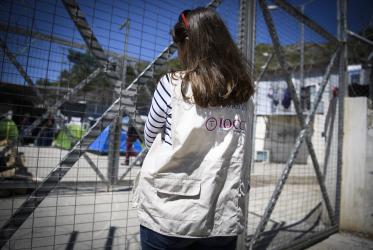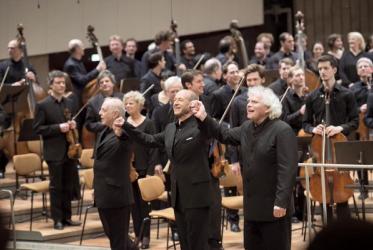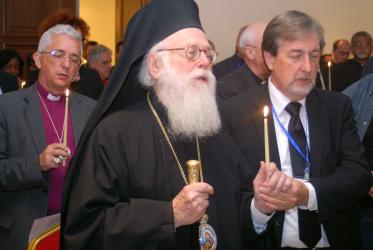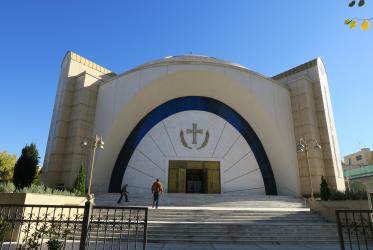Displaying 81 - 100 of 126
WCC Blue Community implements water changes in the Ecumenical Centre
16 February 2017
Plans for 2017 decided by WCC Executive Committee
01 December 2016
Winners of WCC photo contest announced
09 May 2016
Refugees in Berlin get dose of culture
10 March 2016
Afghan filmmaker sees Berlin as home — for now
10 March 2016
"I hit the ground running": Katalina Tahaafe-Williams
16 February 2016
WCC convenes strategic meeting on sustainable development goals
11 February 2016
Fleeing from – rather than to – a place
10 February 2016
Thomas de Maizière: On the frontlines of refugee integration
20 January 2016
Rebuilding a smashed church in Albania
23 December 2015
Orthodox church in Albania resurrected
23 December 2015













